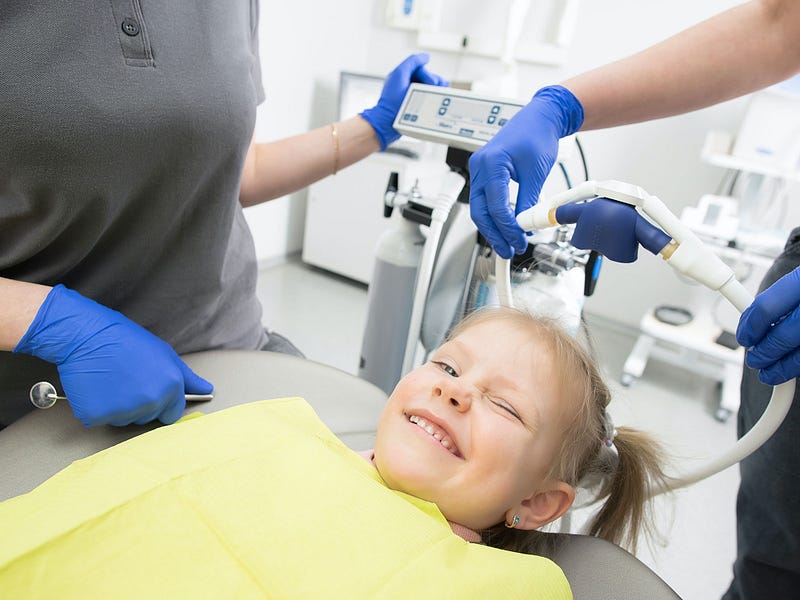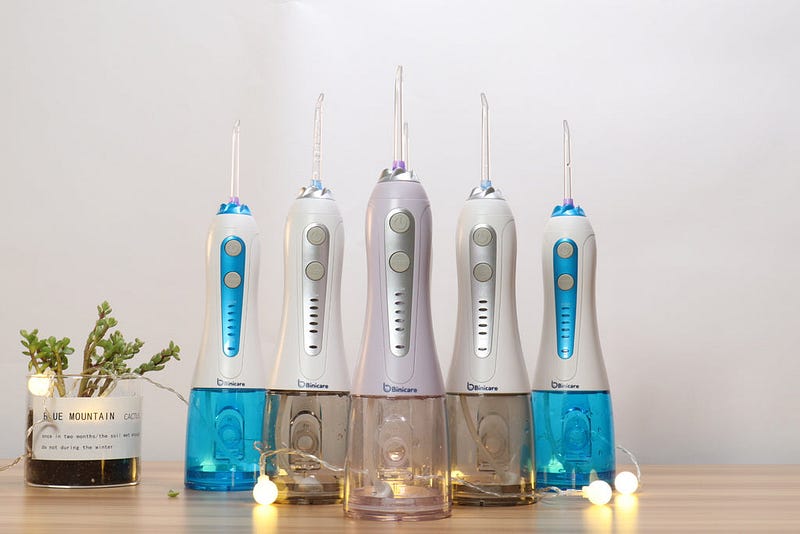How Do I Improve Dental Health?

Some people are lucky enough to go the majority of their lives without any major dental issues, including cavities. Some others aren’t so lucky. But those whose dental woes tend to be on the more prominent side can still take actions that will mitigate their dental struggles and improve their overall dental hygiene. The key is regular upkeep and care for one’s mouth. Let’s take a look at some simple dental behaviors that drive optimal dental health.

Brush Twice or Thrice Daily
The first step is the most obvious. Because food particles cling to your teeth, they being to fester if not removed. The remnants of meals begin to generate bacteria which produces plaque. As plaque increases, it begins to break away at the enamel (the white coating that protects our teeth from sensitivities. Plaque also leads to the growth of tartar at the gum lines.
Regular brushing maintains the plaque levels, preventing tartar build-up, and thereby reducing the effect on teeth and gums. By brushing at least twice, but if possible three times a day, people can keep the plaque at bay after every major meal.
Only brushing is insufficient, and people should use the best water flosser as a supplement to clean up thoroughly. And the best water flosser depends on user-friendly design, great quality, and multiple accessories but not just the higher price.
Use the Right Toothbrush and Replace Often
Manual toothbrushes work well if they are utilized correctly, but electric ones work even better. Manual toothbrushes should have soft bristles, as continuous scrubbing should clean the plaque off teeth, rather than inflicting damage on the teeth themselves. They also should be replaced regularly (every few months) since some of the bacteria gathers up on the toothbrush, even after it is rinsed post-brushing, and the more prominent it grows, the greater the chances of it being reintroduced into one’s mouth.
Electronic toothbrushes can last longer, but if these have replaceable tops, they should be switched out as well. Electronic brushes should also be charged or have batteries replaced when needed in order to vibrate at the right frequency. People should brush their teeth every day to get dental health and fresh breath, and should you floss every day? Of course, you need.
Regular Flossing
How important is flossing? Extremely. So, why is flossing important? Brushes can only do so much to reach the tight spaces between the teeth. Even when those are reached, the bristles often cannot effectively scrub the gunk and food particles away.
Flossing, on the other hand, can get at those hard-to-reach areas between teeth. Those with dental work sometimes hesitate when it comes to flossing because they are apprehensive about dislodging or damaging the results of expensive dental procedures. However, they still want to floss daily so in those cases a rechargeable water flosser is a great option as it uses the power of water streams to essentially power wash between teeth and along the gumline.
Don’t Rush Through the Brush
Brushing teeth and flossing teeth is not everyone’s favorite, so many people neglect taking the appropriate time that it takes to maintain their dental health. They just want to say they did it and get the experience over with. However, brushing quickly means that not all of the teeth are getting the attention they need. This is especially true for back teeth and the backs of teeth, both of which are more cumbersome to reach.
The rule of thumb is that two minutes is the minimum time that should be allotted to every brushing session (an actual two minutes, not just something that feels like two minutes). Regardless of whether the brushing is performed with a manual or electric toothbrush, two minutes is a sufficient amount of time to give every tooth the required attention. Oral irrigator solution is important and necessary to your dental health and overall body health in the long run.
Using the Right Toothpaste
There are many different types of toothpaste on the market, all meant for their own particular niche of brusher. But tooth whitening options or flavor options for those who are not big on flavored toothpaste, pale in comparison to the importance of using toothpaste with fluoride.
While some experts are concerned with the lack of sufficient research on how fluoride affects other human bodily functions, there is no disputing its efficacy in terms of dental health, helping to fight cavities and gum disease-causing bacteria. Best teeth flosser can also relieve gum diseases, you could choose a water flosser for sensitive gums.
Limit Your Vices
We all have our vices, but many of them actually negatively affect our dental health. Smoking is at the top of the list. Aside from well-established health concerns, smoking causes bad breath and causes tooth discoloration. Teeth become weaker, as do gums, which increases the chances of tooth loss. People need to find ways to remove plaque from teeth sufficiently, or it will harden into tartar.
Coffee, an essential staple in many people’s lives these days, can discolor the edges of teeth in addition to having the acidity eat away at the enamel. Most people can’t or won’t kick their coffee-drinking habit, of course. But if you drink coffee through a straw, the contact between coffee and teeth is minimized. Those who like to have their daily glass of red wine are subject to tooth discoloration and acidity problems as well.
Sugary drinks are another big factor in driving tooth decay. Bacteria feed off of sugar, allowing it to increase more quickly in your mouth. Therefore, a high sugar diet exacerbates the chances of growth of harmful bacteria that lead to cavities and gum disease.
To solve these dental problems, the best water flosser cordless you can carry with you anytime and anywhere.
Eat Fruits and Crunchy Veggies
Eating crunchy veggies and fruits like apples and pears stimulates gums which help to combat cavity formation. Aside from being great for dental health, a diet high in fruits and vegetables is fantastic for overall health.
Mouthwash
Even the most avid brushes tend to overlook the benefits of antibacterial mouthwash because they believe it simply serves to improve their breath. This is far from true, however, since mouthwash also reduces inner-mouth acidity, helps to remineralize teeth, and gets into places brushes can’t reach and even those who brush and floss daily may have a hard time accessing. It also helps to fight bacteria, which, as established is the leading cause of most typical dental problems.
Regular Dental Visits
Even the most stellar brushes should be in the habit of visiting their dentist twice a year. Some who have more regular dental issues are recommended to go three or four times. Brushing, flossing, and mouthwash will keep the dental issues down, but professionally done hygienic cleanings at the dentist’s office will meticulously go through one’s mouth finding any areas of concern, addressing them before they become painful, costly issues, and advising patients on how to better upkeep their dental health. People getting braces need to visit their dentists more often, water flosser for braces are only helpful supplements.
Cited from https://binicare.com/blogs/binicare-blog.

Comments
Post a Comment